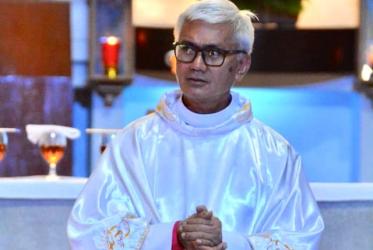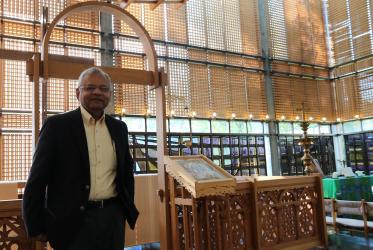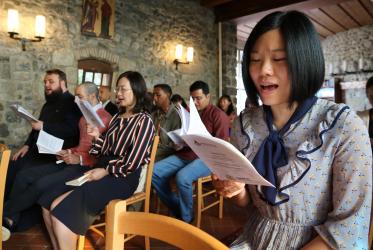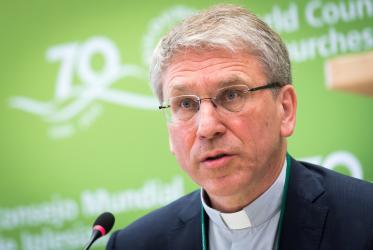Displaying 81 - 100 of 134
Peacemakers at work in Sri Lanka
29 April 2019
WCC condemns massacre of farmers in Philippines
12 April 2019
All pilgrim routes lead to COP24
11 December 2018
New students welcomed at WCC Bossey Ecumenical Institute
13 September 2018
#WCC70: A prayer about health and healing
20 July 2018
WCC Executive Committee issues statement on bishop from Philippines
18 November 2017
“Overcoming economic injustice” vision of WCC’s Athena Peralta
23 February 2017
New videos help congregations hasten HIV response
20 October 2016













